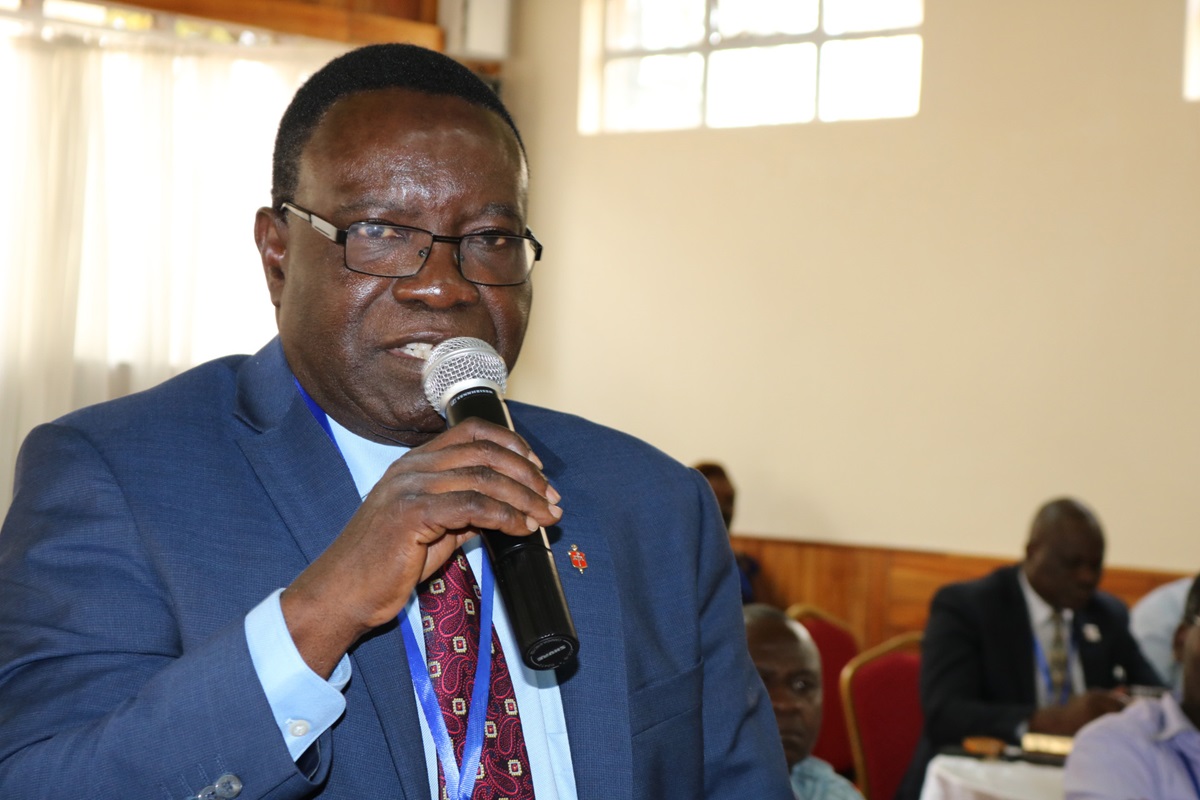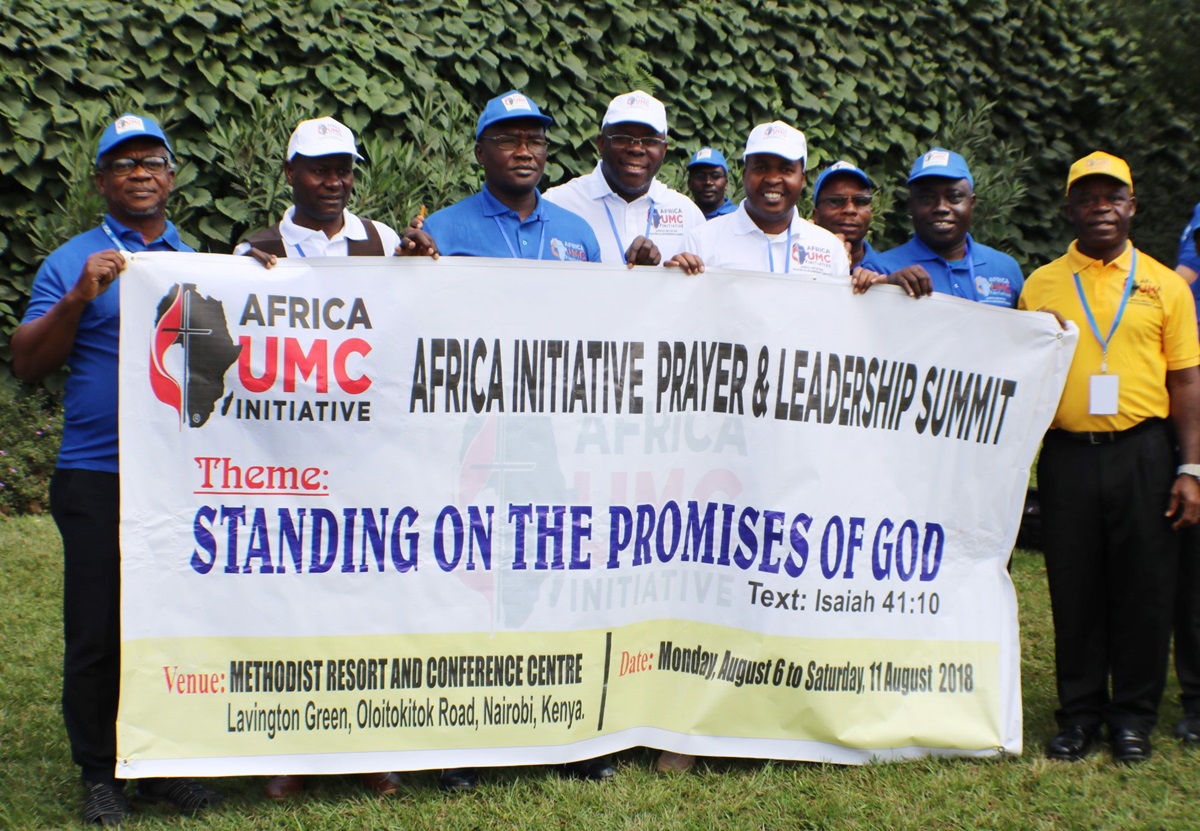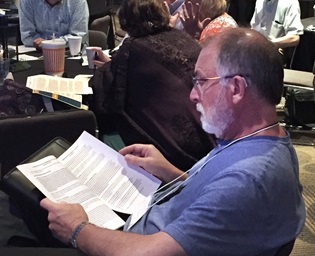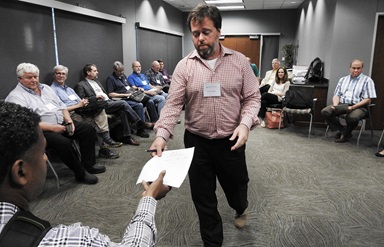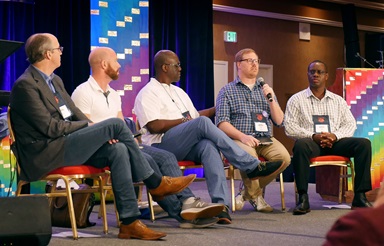Speakers at a gathering of the Africa Initiative offered support for the Traditional Plan that will be under consideration at the special General Conference in 2019.
They also called for African conferences of The United Methodist Church to move toward economic self-sufficiency.
“You do not know how much strength you have until having strength is your only option,” said the Rev. Edwin Momoh, an Africa Initiative leadership team member from the Sierra Leone Conference.
Founded in 2008, the Africa Initiative offers training for the annual and provisional United Methodist Church conferences of the continent in a range of areas, including cross-cultural evangelizing and missions, discipleship, leadership development and resource mobilization.
The organization also provides a forum for discussion of key issues before The United Methodist Church.
The Africa Initiative Prayer and Leadership Summit, held Aug. 6-11 in Nairobi, carried the theme “Standing on the Promises of God” (Isaiah 41:10) and brought together more than 80 leaders from the central conferences in Africa, many of them General Conference delegates.
Episcopal leaders present included Bishop Kasap Owan Tshibang, South Congo Area; Bishop John Wesley Yohanna, Nigeria Area; and Bishop Daniel A. Wandabula, East Africa Area.
Kasap promised the group that he would take the lead in dispelling the notion, held by some members of the African College of Bishops, that the Africa Initiative tries to offer an alternative leadership structure to the bishops.
“I am a founding member of this group and it is not an opposition to what we do as bishops,” he stressed, adding that the initiative is providing leadership training that benefits United Methodist Churches across Africa.
Wandabula praised the Africa Initiative for preparing delegates for General Conference and lobbying to have more African representation on church boards and commissions.
“As we prepare for the 2019 special session of the General Conference, we should look at the Bible as the true words of God,” he said.
The special General Conference was called by bishops to try to help the denomination stay as unified as possible despite decades-old division over how accepting to be of homosexuality.
The Traditional Plan is one of three contained in the Commission on a Way Forward report that will be considered in St. Louis. It calls for retaining the church ban on ordination of “self-avowed practicing homosexuals,” as well as the prohibitions on clergy officiating same-sex weddings or churches hosting them. It would retain the church’s official position that the practice of homosexuality is incompatible with Christian teaching.
In addition, the Traditional Plan would call for greater enforcement of those restrictions including requiring congregations and conferences to form their own Methodist denominations if they won’t pledge to abide by church rules on homosexuality.
Bishops do not have a vote at General Conference, but Yohanna addressed the choices facing delegates.
“I am not speaking for the College of Bishops in Africa, but come the Special General Conference in 2019, we will support you our brothers and sisters who are advocating for the Traditional Plan,” he said. Yohanna was one of the 32 members of the Commission on a Way Forward.
Those attending the Nairobi meeting received training on how General Conference works, with an emphasis on the special General Conference that’s set for Feb. 23-26 in St. Louis.
The Rev. Keith Boyette, president of the Wesleyan Covenant Association, was among the speakers.
“If The United Methodist Church decides not to follow Jesus Christ by adopting any plan other than the Traditional Plan, we the members of the Wesleyan Covenant Association will follow Jesus Christ,” Boyette told the Africa Initiative gathering.
The central conferences in Africa continue to be heavily supported financially by the U.S. church, and that needs to change, Momoh said.
Momoh offered no specific plan for gaining autonomy, but he noted that the church’s growth in Africa is an advantage and offers the chance to continue and even expand ministry by drawing on local membership and resources. He added that the Africa Initiative can help through training initiatives.
“The Church belongs to God and He will ensure that it survives whether in Africa, the United States, or any part of the world,” Momoh concluded.
African Initiative leaders declined to say how the Nairobi gathering was paid for.
Good News, the unofficial caucus supporting the church’s traditional teaching on homosexuality, has made grants to the Africa Initiative to help the group “increase the capacity of African leaders and their participation at General Conference,” said the Rev. Thomas Lambrecht, Good News’ vice president and general manager.
Lambrecht added, “The Africa Initiative determines their program. I’m sure that part of the money we contributed helped to support the Nairobi meeting, but everything is driven by decisions made by the Africa Initiative."
Lambrecht spoke at the Nairobi gathering, briefing those in attendance on the Traditional Plan and the two other main options — the One Church and Connectional Conference plans — that will be before General Conference.
Swen is a communicator in Liberia. Sam Hodges, UMNS writer in Dallas, contributed to this report. News media contact: Vicki Brown, Nashville, Tennessee, (615) 742-5470 or newsdesk@umcom.org. To read more United Methodist news, subscribe to the free Daily or Weekly Digests
Like what you're reading? Support the ministry of UM News! Your support ensures the latest denominational news, dynamic stories and informative articles will continue to connect our global community. Make a tax-deductible donation at ResourceUMC.org/GiveUMCom.

